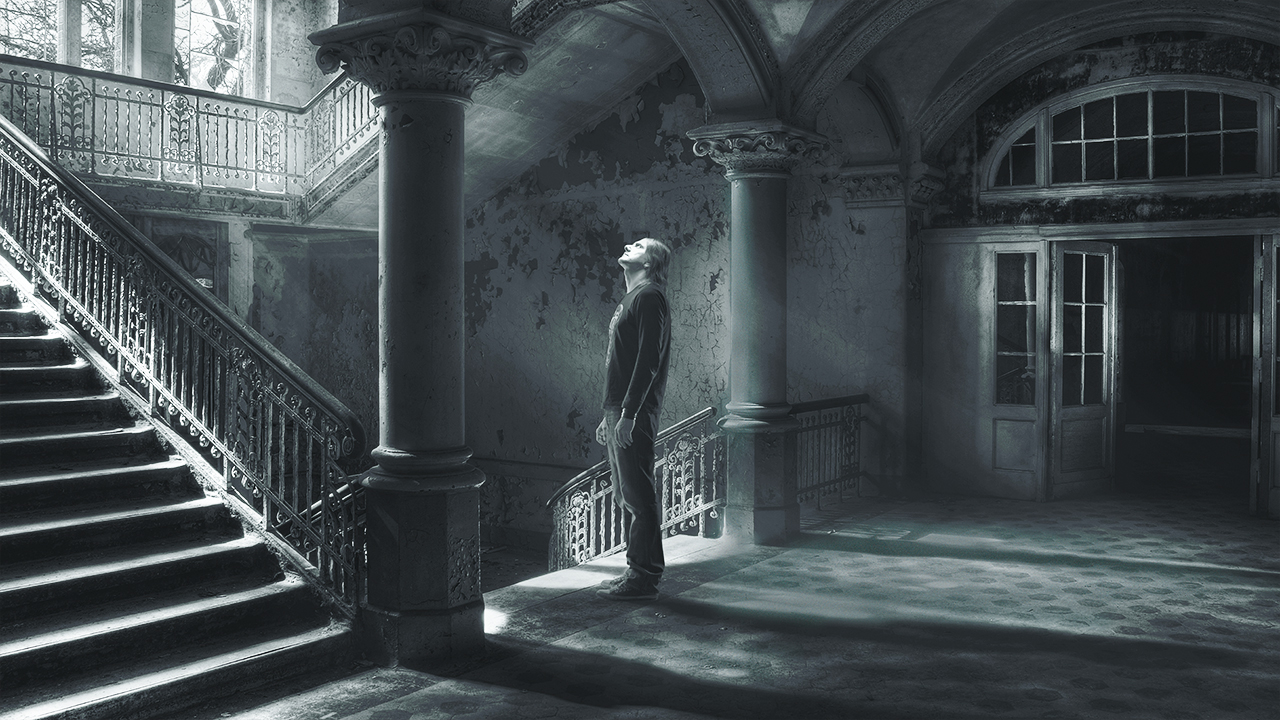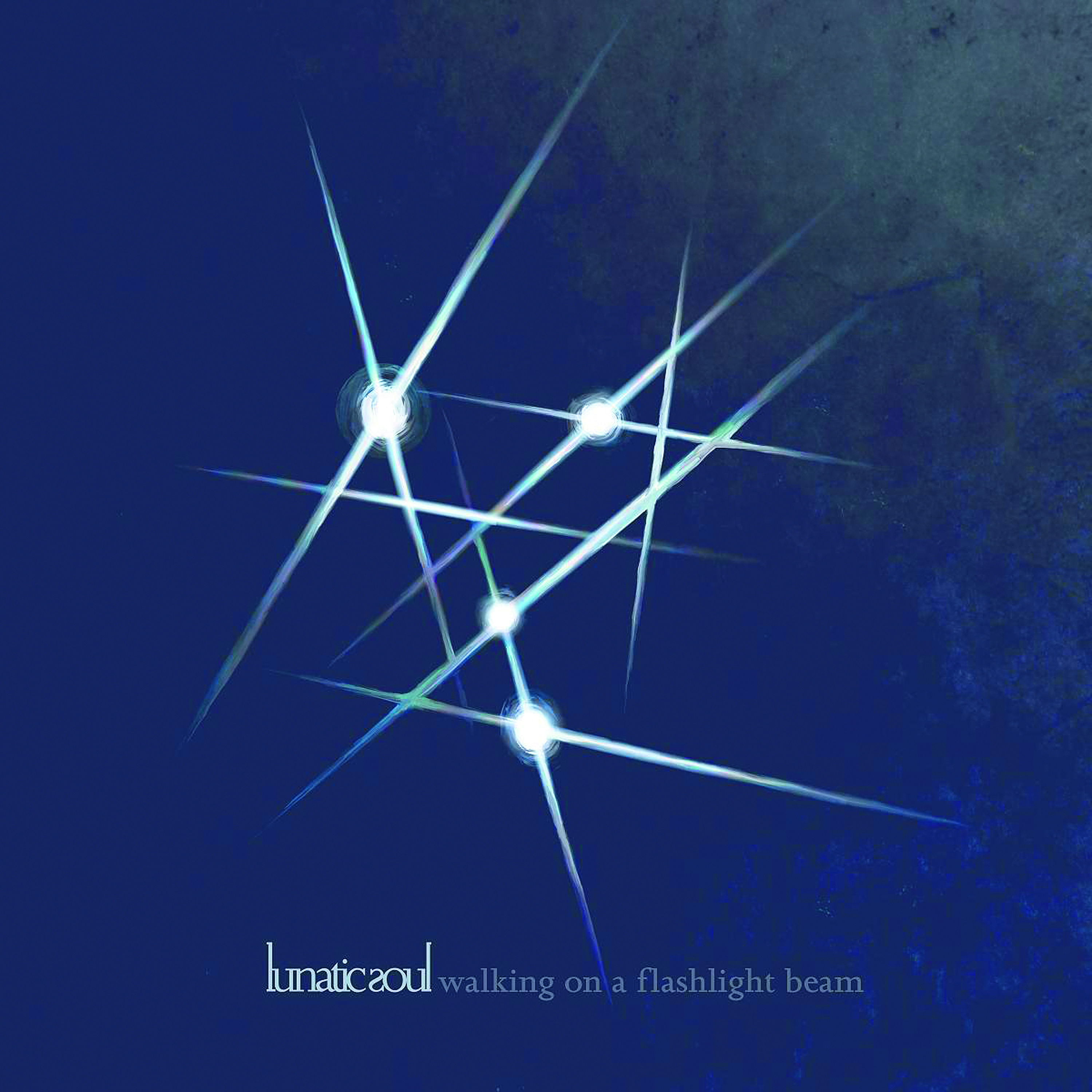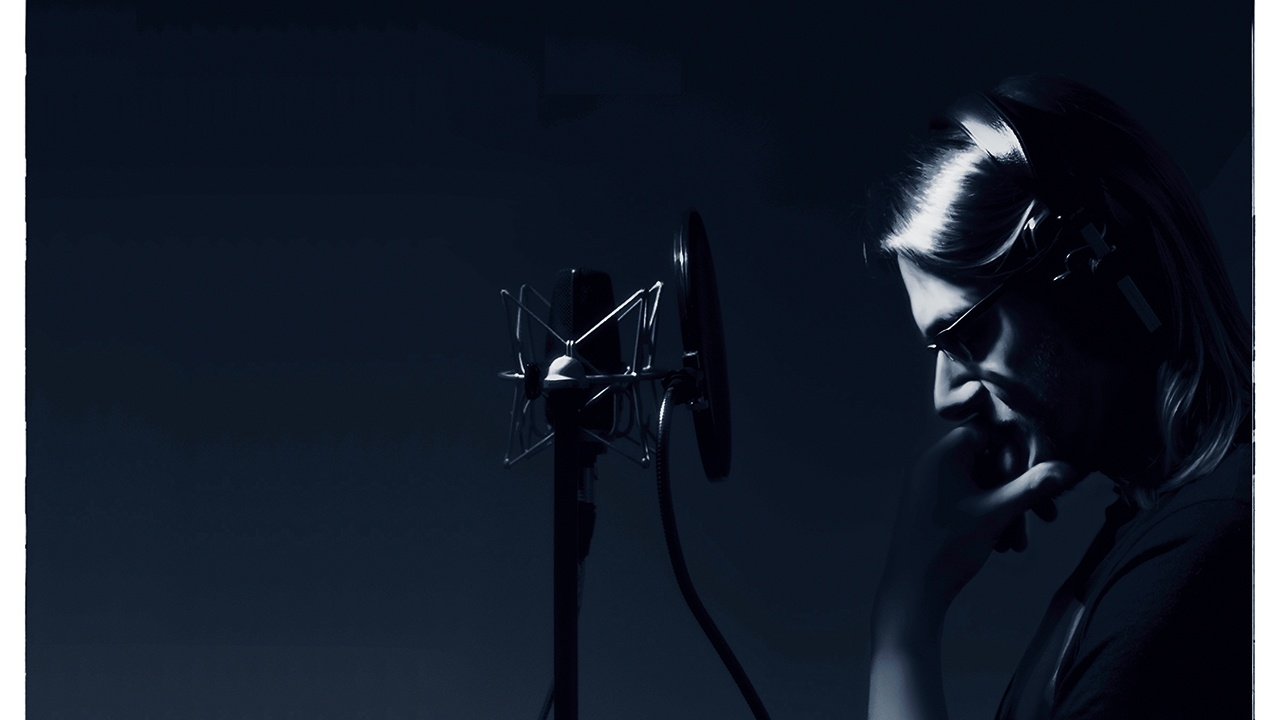
Stepping away from his more traditional rock band Riverside to revisit his “darker ego” with solo prog project Lunatic Soul, in 2014 Mariusz Duda told Prog how and why he is pushing things even further with album number four…
There are moments when the modern age seems determined to suck all the joy from our day-to-day existence. Bombarded by glittering banality, we face a constant battle to claw meaning from life’s whirlwind of transience. As a result, many of us cling to music as one of the few things that promises and delivers depth and the realising of dreams, enabling us to cling to the mortality train as it thunders forward.
Sometimes, of course, flights of creative fancy are just about the only thing worth bothering with, and fans of progressive music are generally more passionate than most about embracing sounds that crackle and hum with the power of imagination.
A modern prog heavyweight and one of our most intriguing aural draftsmen, Mariusz Duda has been exploring the limitless scope of his own musical mind for well over a decade now. Those of a more traditional disposition will doubtless be familiar with his main band Riverside. However, it’s through his ongoing side-project Lunatic Soul that the Polish multitasker has painted the most vivid and idiosyncratic sonic pictures, and new album Walking On A Flashlight Beam sounds very much like the most fascinating manifestation of his mind’s eye to date.
“The title means something like catching the rainbow,” he tells Prog. “It’s about using your imagination. The whole story is about someone who is closed up in his own shell, in his shelter, in a dark room with the curtains closed and the sun is behind the window. He’s surrounded by books and that’s enough. He doesn’t need human contact – he’s just using his imagination.
“The title comes from a great Batman comic book called The Killing Joke, and the last scene is Batman chasing the Joker and he catches him, pulls him down and says, ‘You know, I’ve got a joke… there were two guys in a lunatic asylum and they decided to escape, so they went up to the roof. There were a lot of buildings and big gaps between the roofs. The first guy jumped over but the second one was scared, so the first one said: ‘Don’t be scared, I’ve got a flashlight with me, I will shine a beam for you and you can walk along the beam to my side…’ The guy that was scared said: ‘Do you think I’m crazy? I know you’ll turn it off when I’m in the middle…’ That was the killing joke! [Laughs] But the point is that walking on a flashlight beam is something that can be real in your head…”

While it would be unfair to suggest that Duda’s work with Riverside lacks imagination, it would be equally erroneous to suggest that Lunatic Soul represents an ongoing opportunity for him to step away from a traditional band format and make music that exists away from that format’s self-evident limitations. Over the course of four albums, Lunatic Soul have showcased a very different and thrillingly fluid expression of Duda’s innermost musical instincts, intermittently rooted in the realm of electronica but neither defined nor restricted by it. Although there’s an inevitable and discernible overlap between the two projects, Walking On A Flashlight Beam goes far deeper and darker than anything Riverside have conjured to date: evidence of a singular and liberated artistic vision.
“The whole reason for Lunatic Soul is that I wanted to do something different,” Duda shrugs. “I brought this darkness from Riverside, and more oriental sounds. I flirted with oriental sounds with Riverside on parts of Second Life Syndrome, but it wasn’t the full sound that I wanted to achieve. So I started a new project, and the core of Lunatic Soul is those oriental sounds, connected with the darkness. I think that’s still present on the new album, but I had to change something.
“I just thought it would be nice to have some progress… to have some prog! [Laughs] So I skipped the flutes and the bongos and the congas and the folk-ish elements and replaced them with soft electronic things. But the core of this record is still kind of similar to the ones before. It has my voice and my very characteristic melody lines that I use, but it is different too. Maybe I should wait another two albums before I find the musical core of Lunatic Soul… but I’m on my way!”
Perhaps the most striking thing about the new album is how it seems to simultaneously take Duda into virgin territory while hurling instantly recognisable reference points into the air. Laden with disorientating ambience, brooding electronics and a frequently mesmerising sense of purposeful temporal drag that gently demands that the listener commits to something approaching total immersion, it’s a pointedly dark and unsettling piece of work that juggles modernity and nostalgia with consummate skill. As he explains, the fluid nature of this primarily studio-bound enterprise means Duda can tap into the essence of his influences without ever disappearing into a retrogressive wormhole.
“This is very strange music,” he grins. “I skip the electric guitar, which is very important for rock music, but I believe other sounds can be much more original. When this began I was very influenced by Peter Gabriel’s fourth album, Dead Can Dance, Cocteau Twins and a lot of other things. This time, I’m experimenting a lot more with noise and I also wanted to bring in some cold sounds from the early 80s, like The Cure or Joy Division. But when I’m between Riverside albums, I’m searching for something new. Lunatic Soul is always the beginning of that search. This is much more wide open and there are more possibilities. I can make more progressive music, in a broad sense, than I can in Riverside, because Riverside is still a rock band. We flirt with progressive music and the compositions are more coherent, but that’s the beauty of this. Lunatic Soul enables me to experiment more. I can be selfish!”
Having completed the latest chapter in the Lunatic Soul story, Duda is already moving on to the next major task, which, his fans will be pleased to note, will be a new Riverside album. Duda expects to release it this September and he claims it will see the band move away from the retro-tinged bombast of last year’s Shrine Of New Generation Slaves and towards “something more modern”.

However, before he enters the eye of that particular creative storm, the Pole is keen to stress that he regards himself as a work in progress, with each achievement along the way adding to a strong desire to keep aiming higher and achieving more.
“I’ve got a lot of distance from myself. I’m also my own biggest critic and I feel that everything I do is 75 or 80 per cent as good as it can be,” he says. “I believe you need to have a dream, to aim at something a little bit unreal, so you can go through your life believing you can achieve something important.
“I haven’t recorded my best album yet and I probably won’t within the next five albums because I’m still searching for the philosopher’s stone! [Laughs] We know it’s not possible to find it, of course, but I hope the next Riverside album will give me 87 per cent satisfaction and then maybe 92 per cent satisfaction… and then it will increase each time by 0.5 per cent or whatever! It could take ten years to achieve something interesting so maybe I’m still in the middle of the journey. I always have potential and that gives me the strength to keep making music.”
As he speaks, Mariusz Duda can barely conceal the joy he gains from dedicating his life to the process of snatching musical magic from the ether, but it’s also hard to deny that much of his work points to a tortured soul behind that cheerful façade. The music on Walking On A Flashlight Beam often seems to be emerging from psychological shadows or seeping through cracks in its composer’s self-created protective edifice. Duda is on a quest, both to attain the ultimate expression of his internal machinations and to invite the rest of us along for a roller-coaster ride through recurring dreams and skewed realities.
“Let’s just say that Lunatic Soul is my darker ego!” he laughs. “It’s still about stories of life and death and something in-between, but this is personal – it’s my therapy and my experiment and it’s a journey… to somewhere! It helps me very much. The sounds are deep and there are no accidents. I’m making music and pushing boundaries but I’m also learning how to destroy music too.”







